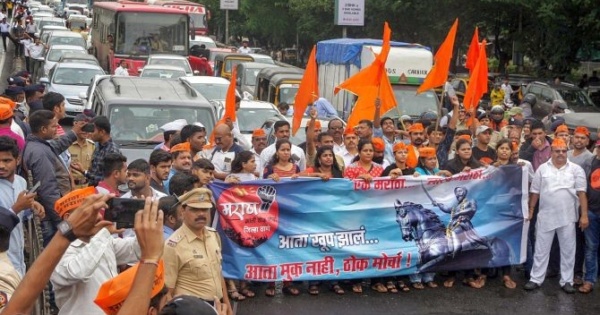MUMBAI: Chief Minister Devendra Fadnavis-led Maharashtra government on Sunday approved the Maratha Reservation Bill, for which the community had been protesting since 2017.
Maharashtra Assembly’s Winter Session will start on Monday.
Once the Bill is passed in the assembly and notified, the Marathas will be entitled to reservation in the government jobs and in admission in government institutions.
Chief Minister Fadnavis said that as per the recommendation of the Maharashtra State Backward Class Commission, the state government will give independent reservation to the people belonging from the Maratha community under a category called Socially and Economically Backwards or SEBC.
Maharashtra State Backward Class Commission had submitted its report in the matter to Chief Secretary D K Jain on Thursday.
“We received the Backward Class Commission report with three recommendations. Independent reservation will be given to the Maratha community in SEBC (socially and economically backward) category.
“We have accepted the recommendations and constituted a Cabinet Sub-Committee to take statutory steps for implementing them,” Fadnavis said.
The development came days after the Maharashtra Chief Minister had confirmed that Maratha community would get the reservation in the government jobs and in admissions in academic institutions from December 1.
The Maharashtra State Backward Classes Commission has suggested 16 per cent reservation for the Maratha community, stating that the community is socially and economically backwards.
The Maratha community accounts for 33 per cent of the state’s total population.Earlier on August 9, 2018, around 194 people were detained for rioting and arson after a protest, seeking the reservation for the Maratha community, turned violent.
In 2014, the then Congress-NCP government had announced 16 per cent reservation for Marathas and five per cent reservation for the Muslims.
However, the Bombay high court stayed the decision in response to a PIL.













